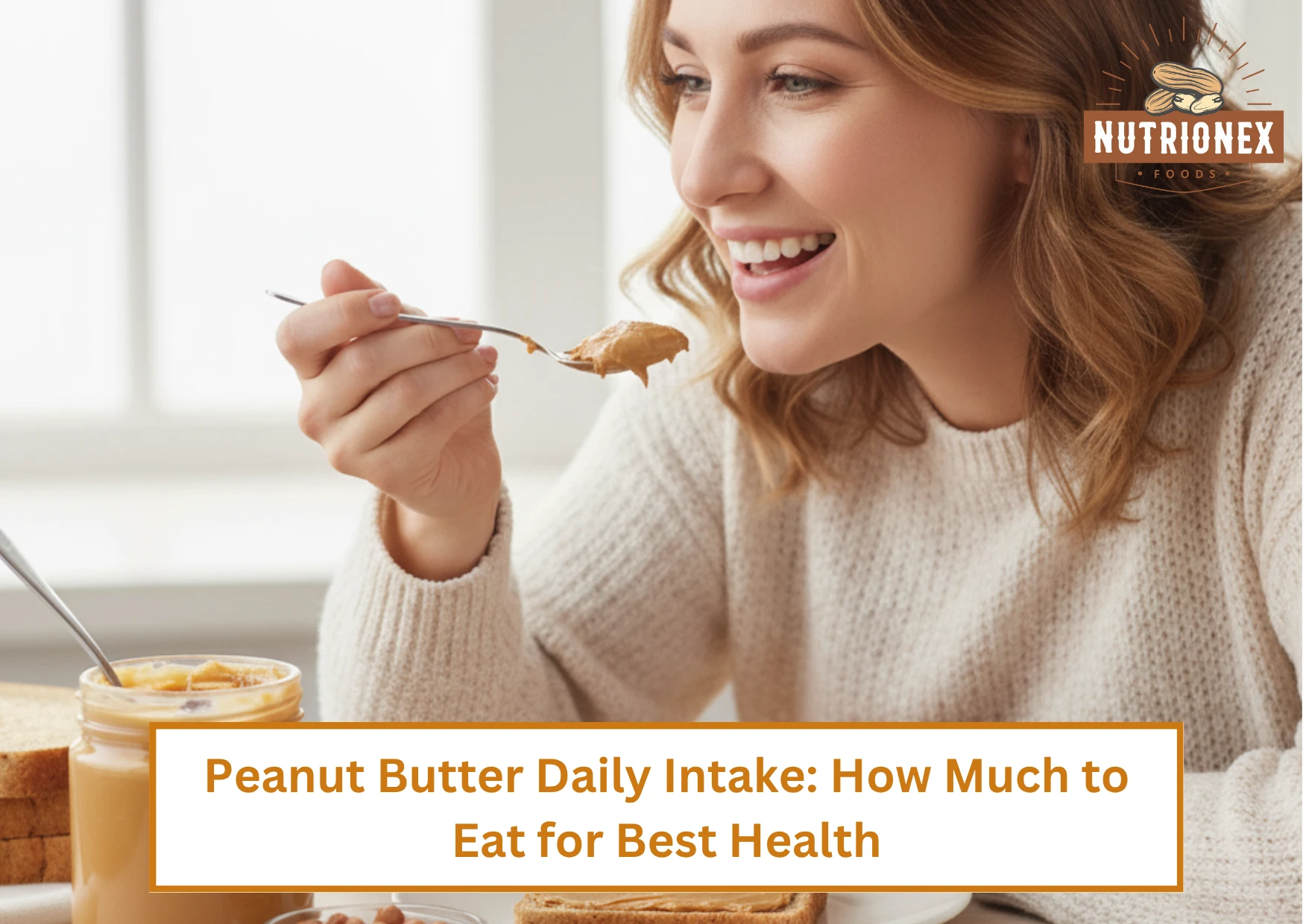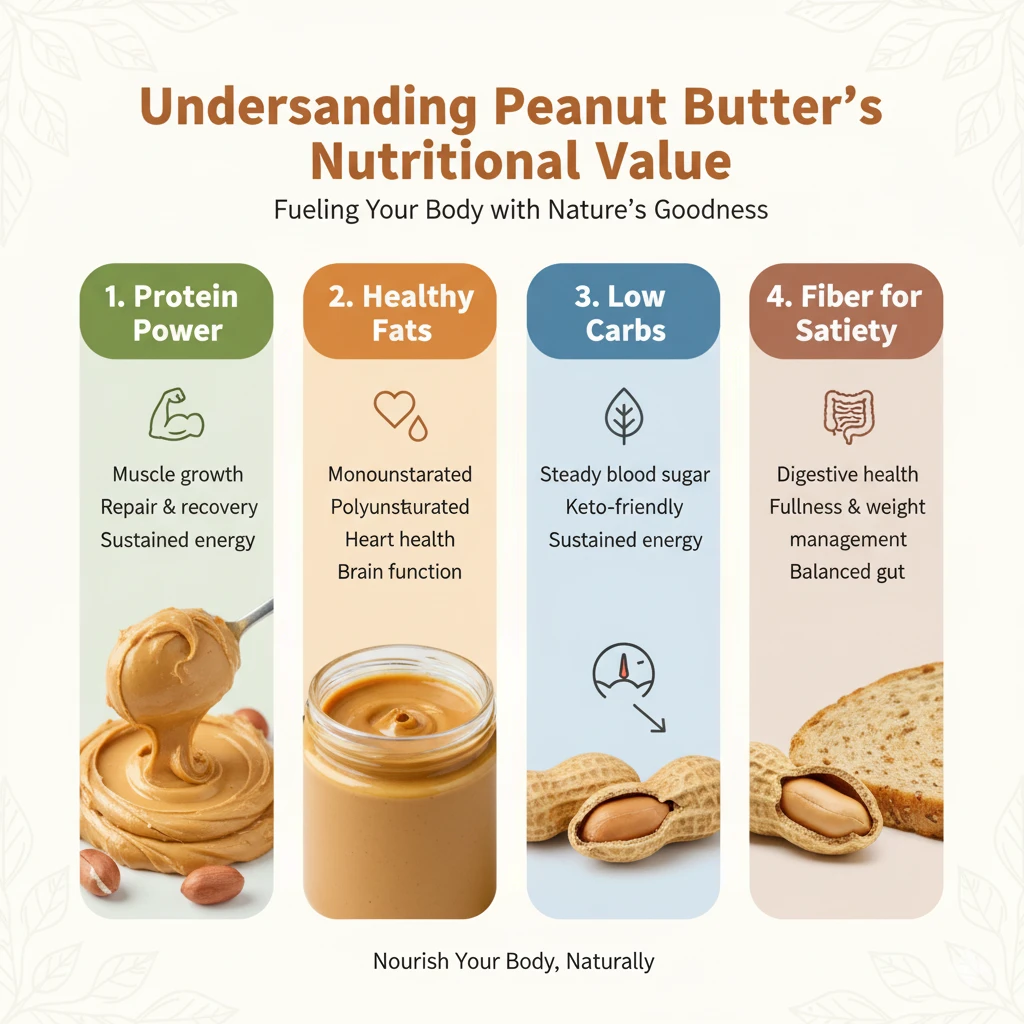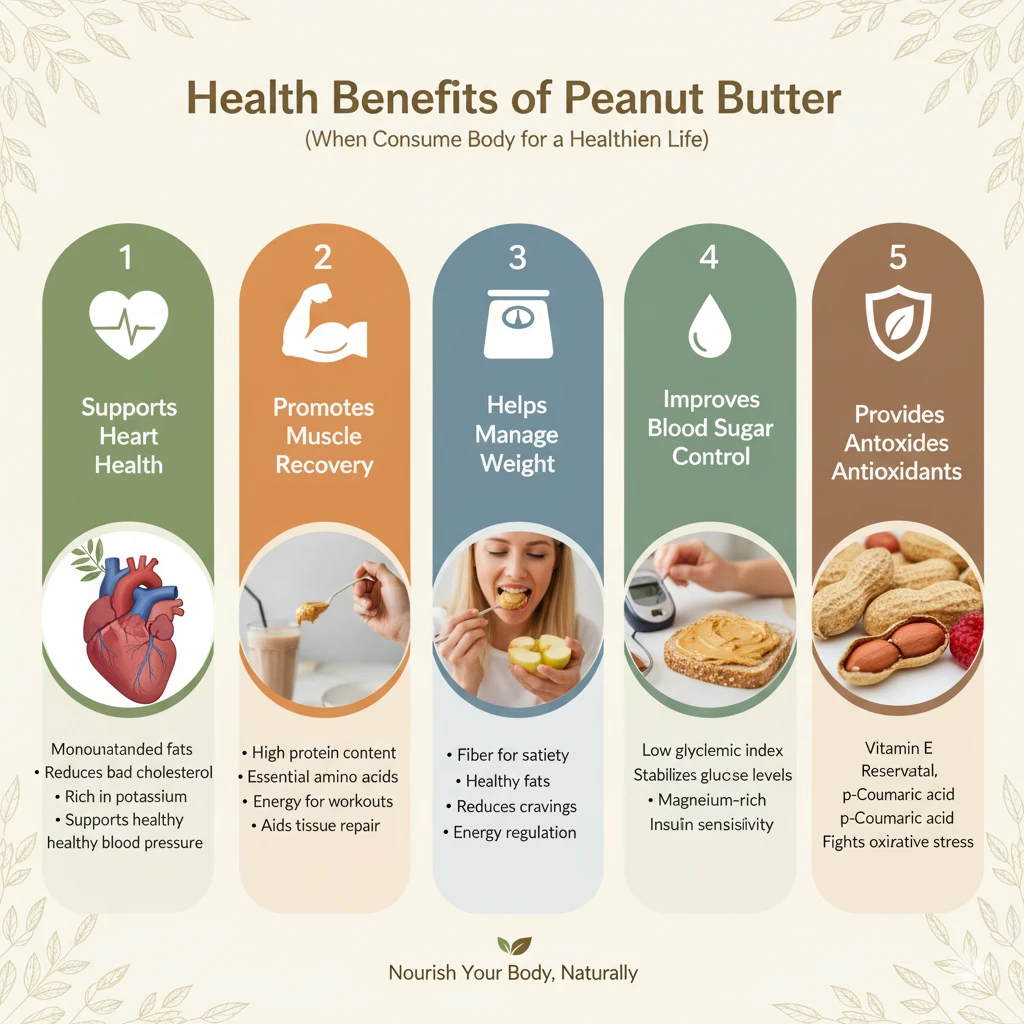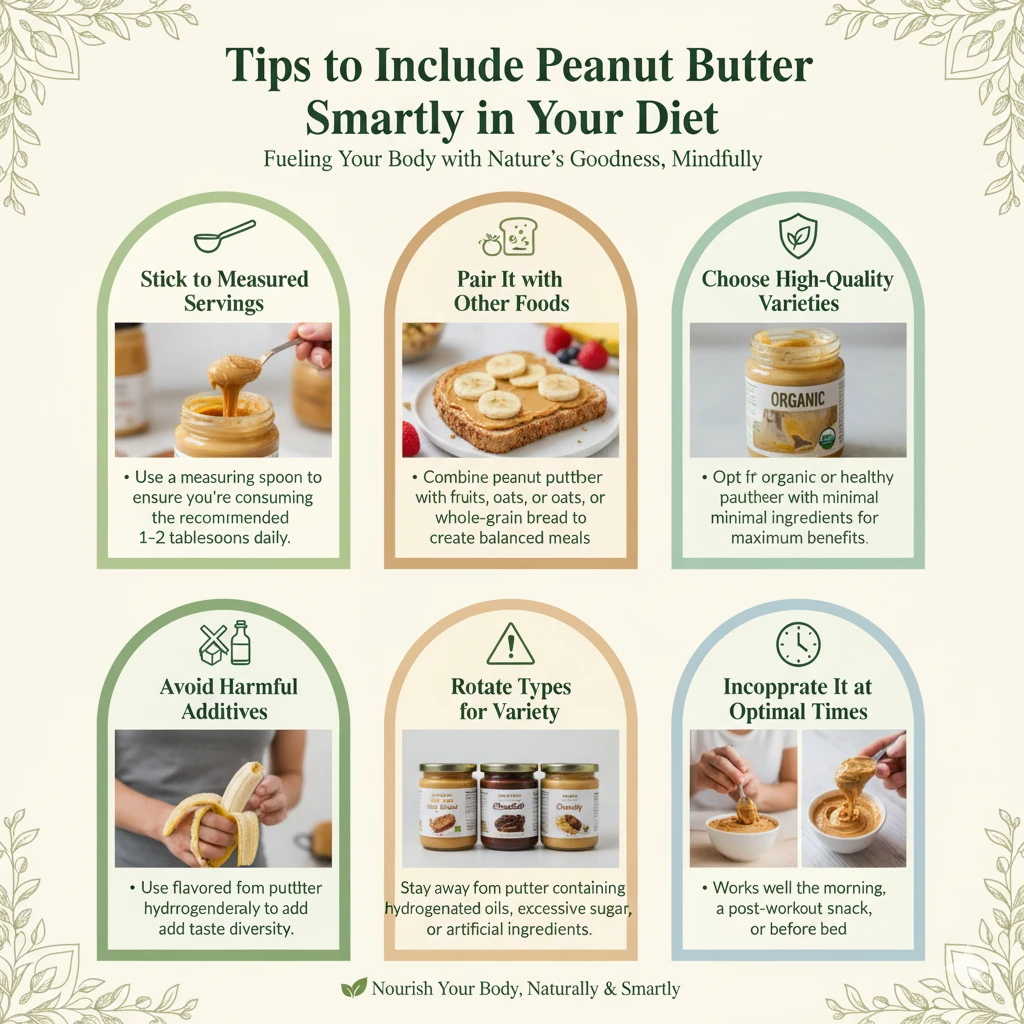
Peanut Butter Daily Intake: How Much To Eat For Best Health
Peanut butter has long been a pantry favorite for millions of people worldwide, not just for its rich, creamy texture and indulgent nutty flavor, but also because it is incredibly versatile in both sweet and savory dishes. From spreading it generously on morning toast to blending it into nutritious smoothies, peanut butter offers a delicious combination of taste, convenience, and nutrition. However, many people often wonder how much peanut butter is safe to eat daily without tipping the balance between health benefits and excess calories. Determining the ideal peanut butter daily intake is crucial for maintaining optimal energy, supporting muscle growth, and promoting overall well-being.
Why Peanut Butter Deserves a Place in Your Daily Diet
Peanut butter isn’t just a comfort food treat; it is a nutrition powerhouse packed with essential nutrients that your body needs for energy, recovery, and general health. Made from roasted peanuts, it contains a healthy blend of monounsaturated fats, plant-based protein, fiber, and vital vitamins. For instance, a standard serving of 2 tablespoons (approximately 32 grams) delivers roughly 190 calories, 8 grams of protein, 16 grams of fat, and 3 grams of dietary fiber, providing both immediate energy and lasting satiety.
Beyond macronutrients, peanut butter is also rich in micronutrients such as vitamin E, magnesium, potassium, and niacin, which collectively support heart health, brain function, and metabolism. Whether you choose organic peanut butter, a no sugar peanut butter variety, or a high protein peanut butter specifically designed for fitness enthusiasts, this spread can serve as a convenient, nutritious option for breakfast, snacks, or even as part of a post-workout meal.
Understanding Peanut Butter’s Nutritional Value

Before you decide on your peanut butter daily intake, it’s important to understand exactly what nutrients you are getting from this popular spread. Peanut butter is uniquely positioned as a nutrient-dense food because it offers a combination of healthy fats, protein, and fiber that few other spreads provide.
-
Protein Power: Each serving delivers around 8 grams of high-quality plant-based protein, making peanut butter an excellent choice for vegetarians, vegans, or anyone looking to supplement their protein intake without consuming animal products. Peanut butter protein supports muscle repair and helps keep you full between meals.
-
Healthy Fats: Peanut butter is predominantly made up of monounsaturated and polyunsaturated fats, which help maintain healthy cholesterol levels, reduce inflammation, and support cardiovascular health.
-
Low Carbs: Most peanut butter varieties are naturally low in carbohydrates, making them suitable for low carb peanut butter diets or ketogenic meal plans.
-
Fiber for Satiety: The natural fiber in peanut butter slows digestion, helps regulate blood sugar levels, and reduces hunger cravings, making it easier to maintain a healthy weight.
When compared to other nut butter such as almond or cashew butter, peanut butter often provides more protein per serving at a more affordable price, making it a practical choice for daily consumption.
How Much Peanut Butter Should You Eat Daily?
Determining the right peanut butter daily intake depends on your individual energy needs, activity levels, and health goals. For most adults, a standard serving of 2 tablespoons per day (about 32 grams) is generally considered safe and beneficial. This amount provides essential nutrients like protein, healthy fats, and fiber without adding excessive calories to your daily diet.
For Weight Maintenance:
If you are aiming to maintain your current weight, consuming 2 tablespoons per day strikes the perfect balance between nutrition and calorie intake. It supplies enough protein and fats to keep you energized while avoiding excess that can lead to weight gain.
For Weight Loss:
If your goal is to lose weight, it’s wise to stick to 1 tablespoon per day. While healthy peanut butter can help curb cravings and reduce hunger, it is calorie-dense, and portion control is critical to avoid unintentional calorie surplus.
For Muscle Gain or High Activity Levels:
Athletes or individuals with higher activity levels may consume up to 3 tablespoons per day, particularly if they opt for high protein peanut butter. The additional protein and healthy fats provide fuel for workouts and promote faster recovery after exercise.
It’s important to remember that moderation is key, and overconsumption can outweigh the health benefits.
What Happens If You Eat Too Much Peanut Butter?
While peanut butter offers numerous health benefits, excessive intake can lead to undesirable effects. Eating more than 3–4 tablespoons daily may contribute to:
-
Weight Gain: Because peanut butter is calorie-dense, consuming large portions regularly can quickly add extra calories to your diet.
-
High Sodium Intake: Some peanut butter brands contain added salt, which may increase your daily sodium intake beyond recommended limits.
-
Digestive Discomfort: Overeating peanut butter can lead to bloating or stomach upset due to its high fat content.
-
Added Sugars or Oils: Many commercial varieties contain added sugar or hydrogenated oils, which reduce its nutritional value and can negatively affect heart health.
Opting for natural, organic, or sugar-free peanut butter helps mitigate these risks while still allowing you to enjoy the taste and nutritional benefits.
Health Benefits of Peanut Butter (When Consumed in Moderation)

1. Supports Heart Health
The monounsaturated fats in peanut butter help lower LDL (bad) cholesterol and increase HDL (good) cholesterol. This reduces the risk of cardiovascular disease while promoting better overall heart health.
2. Promotes Muscle Recovery
Protein in peanut butter, especially high protein peanut butter, aids in muscle repair and recovery after workouts. Adding it to a post-exercise snack like a smoothie or protein shake can enhance muscle growth and recovery.
3. Helps Manage Weight
Despite its calorie content, peanut butter can support weight management. The combination of protein, fiber, and healthy fats helps you feel fuller for longer, reducing unnecessary snacking and overeating.
4. Improves Blood Sugar Control
Peanut butter has a low glycemic index and helps stabilize blood sugar levels when consumed as part of a balanced diet. This makes it suitable for people following low carb peanut butter diets or for those managing diabetes.
5. Provides Antioxidants
Peanuts contain antioxidants like resveratrol and p-coumaric acid, which help combat oxidative stress, reduce inflammation, and lower the risk of chronic diseases such as diabetes, heart disease, and cancer.
Is It Okay to Eat Peanut Butter Before Bed?
Many people ask, “Can I eat peanut butter before bed?” The answer is yes, provided you keep portions moderate. A spoonful of creamy peanut butter or crunchy peanut butter before bedtime can be a satisfying, nutrient-dense snack. The protein and healthy fats provide slow-digesting energy overnight, supporting muscle recovery and preventing late-night hunger pangs. To maximize benefits, choose no sugar peanut butter or sugar-free peanut butter to avoid unnecessary spikes in blood sugar before sleep.
Tips to Include Peanut Butter Smartly in Your Diet

-
Stick to Measured Servings: Use a measuring spoon to ensure you’re consuming the recommended 1–2 tablespoons daily.
-
Pair It with Other Foods: Combine peanut butter with fruits, oats, or whole-grain bread to create balanced meals rich in fiber and micronutrients.
-
Choose High-Quality Varieties: Opt for organic peanut butter or healthy peanut butter with minimal ingredients for maximum nutritional benefits.
-
Rotate Types for Variety: Use flavored peanut butter occasionally to add taste diversity while maintaining overall health.
-
Avoid Harmful Additives: Stay away from peanut butter containing hydrogenated oils, excessive sugar, or artificial ingredients.
-
Incorporate It at Optimal Times: Peanut butter works well in the morning, as a post-workout snack, or even before bed, depending on your daily routine.
Nutrionex Foods: Flavorful Private Label Peanut Butter
Nutrionex Foods is a leading private label peanut butter manufacturer and exporter, renowned for offering a wide variety of peanut butter flavours to cater to diverse consumer tastes. From classic creamy and crunchy options to unique seasonal and flavoured peanut butter varieties, Nutrionex as a best peanut butter brand ensures high-quality, nutritious, and delicious products suitable for both retail and bulk requirements. With a strong focus on quality control, natural ingredients, and innovative flavor development, Nutrionex Foods provides businesses the perfect opportunity to offer premium peanut butter under their own brand, combining health, taste, and market appeal.
Which Type of Peanut Butter Is Healthiest?
The healthiest peanut butter is typically made from 100% roasted peanuts with minimal or no added ingredients. Simple, natural options ensure you enjoy maximum nutrition without compromising on health. Here’s a comparison of popular varieties:
| Type | Key Benefits |
|---|---|
| Organic Peanut Butter | Free from pesticides and chemicals |
| No Sugar / Sugar-Free Peanut Butter | Ideal for low-sugar diets and diabetes management |
| High Protein Peanut Butter | Perfect for muscle building and post-workout recovery |
| Low Carb Peanut Butter | Supports ketogenic or low-carb meal plans |
| Flavored Peanut Butter | Adds variety, but watch sugar content |
| Crunchy Peanut Butter | Offers additional fiber and texture |
| Creamy Peanut Butter | Smooth, versatile, and easy to incorporate into recipes |
Frequently Asked Questions
1. Is it healthy to eat peanut butter every day?
Yes, consuming peanut butter daily is safe as long as you limit it to 1–2 tablespoons and choose natural or organic peanut butter without added sugar.
2. How much peanut butter should I eat to gain muscle?
Athletes and active individuals can consume 2–3 tablespoons of high protein peanut butter daily to support muscle growth and recovery.
3. Crunchy or creamy: which is better?
Both are nutritious. Crunchy peanut butter contains slightly more fiber, while creamy peanut butter is easier to spread and digest.
4. Can peanut butter help with weight loss?
Yes, when eaten in moderation. Its combination of protein, fiber, and healthy fats promotes fullness and prevents unhealthy snacking.
5. When is the best time to eat peanut butter?
Any time that fits your calorie and nutrient needs: morning, post-workout, or before bed for slow-digesting energy.
Final Thoughts
The ideal peanut butter daily intake depends on your individual health goals, activity level, and calorie needs, but for most adults, 1–2 tablespoons per day is sufficient to enjoy its nutritional benefits without overdoing calories. Choosing healthy peanut butter options such as organic, no sugar, or low carb peanut butter ensures you get the best quality nutrition. Whether you prefer it creamy, crunchy, or flavored, peanut butter proves that healthy eating can also be delicious, convenient, and satisfying.
